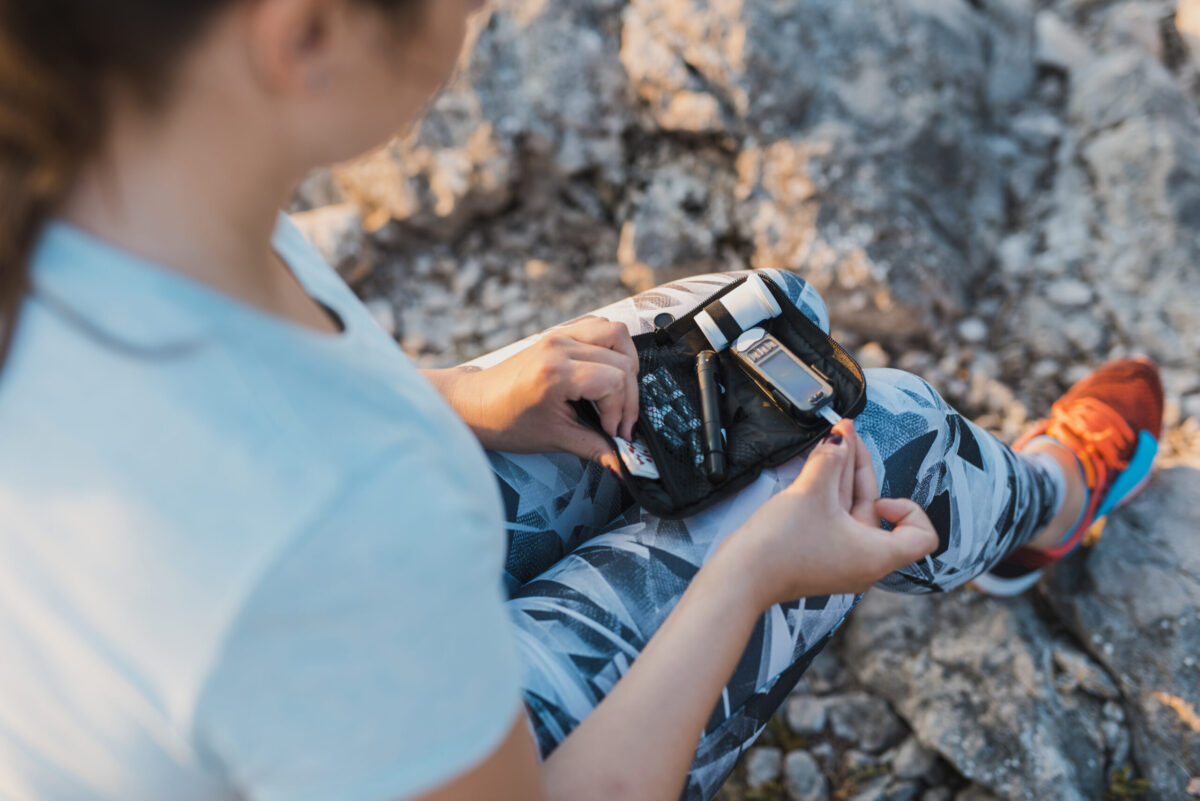Everyone has questions when it comes to COVID-19, and especially the 60% of Americans who are living with chronic health conditions. In Tennessee, one of those conditions is diabetes, which affects more than 650,000 people.
While experts are still learning about the effects of coronavirus, the American Diabetes Association has said that people with diabetes may face increased complications from COVID-19. It makes sense if you understand the effect unchecked diabetes can have on the body, says Dr. Jennifer Gholson, chief medical officer for Shared Health, a subsidiary of BlueCross BlueShield of Tennessee.
“Diabetes is an inflammatory state, which means it causes a kind of ‘internal swelling’ when not properly managed,” says Dr. Gholson. “If you get COVID-19, that inflammation can increase even further, which puts you at a higher chance of developing complications.”
When your body is inflamed, it means your immune system has recognized trauma or illness and is working to heal it. However, if your body never recovers from that inflammation, your immune system stays in a constant state of overdrive, which makes it less effective at fighting illness when it needs to.
Why is the risk of complications from COVID-19 higher for people with diabetes?
Fluctuating blood sugars and increased inflammation may make you more susceptible to COVID-19 because your body’s ability to fight off infections is compromised. Your risk of getting very sick from COVID-19 is likely to be lower if your diabetes is well-managed.
Are people with diabetes more likely to contract COVID-19?
No. While people with diabetes:
- Have higher rates of complications and death than people without diabetes,
- They don’t appear to be more likely to contract COVID-19 in the first place.
How are viral infections like COVID-19 and diabetes connected?
With any viral infection, people with diabetes may experience:
- Increases in inflammation or swelling, and
- Spikes in blood sugar, which can lead to
- Diabetic ketoacidosis (DKA).
In mild cases, DKA can make it difficult to manage the body’s fluid intake and electrolyte levels. In serious cases, DKA can cause organ damage or fluid in the lungs or even be life threatening.
5 ways to protect yourself if you have diabetes
1. Make every effort to keep blood sugar under control
“Without a doubt, getting and keeping blood sugar under control, in addition to social distancing measures, is the most important thing people with diabetes can do to protect themselves right now,” says Dr. Gholson.
2. Exercise
“When routines are disrupted, it’s easy for exercise to get pushed to the bottom of the list,” says Dr. Gholson. “But people with diabetes really can’t afford for that to happen. Make exercise a priority every day if possible, or at least 3-5 days a week. It can be as simple as going for a walk.”
3. Take your medications
“Most people with diabetes should be taking an aspirin and a statin every day,” says Dr. Gholson. “If those are things your primary care provider (PCP) has told you to take, keep taking them as directed.”
If you’re having trouble securing medications or prescriptions as needed, ask if your pharmacy offers delivery or contactless pickup.
4. Consider remote options
“One of the silver linings of COVID-19 is that more physicians and providers are using telehealth now,” says Dr. Gholson. “That means you can probably continue many of your appointments or consults remotely where you wouldn’t have been able to before. And your insurance will cover these visits.”
While talking to providers, consider asking:
- If you should have extra insulin on hand in case of emergency or quarantine
- Whether remote patient monitoring devices such as blood glucose monitors could be helpful for managing your condition
- For app recommendations to help you track vital signs
“There are multiple apps available on most smartphones that can help you monitor your vital signs so you can be alerted to significant changes,” says Dr. Gholson.
5. Take COVID-19 seriously
If you’re living with diabetes, take the same precautions as anyone else:
- Wear a mask in public
- Limit close contact with people you don’t live with
- Stay at least 6 feet apart from others
- Wash your hands often
- Quarantine if you think you’ve been exposed
- If you do become ill, treat the symptoms
In addition to those precautions, maintain regular contact with your care provider. If you start feeling ill, call your provider and try to have the following ready:
- Glucose reading
- Ketone reading
- Fluid consumption
- A clear list of symptoms (stuffy nose, scratchy throat, headache, etc.)
If you experience any of the following symptoms, seek emergency treatment:
- Difficulty breathing or shortness of breath
- Persistent pain or pressure in the chest
- New confusion or inability to arouse
- Bluish lips or face
The bottom line
“When it comes COVID-19, everybody is unique in how they react to it,” says Dr. Gholson. “That makes it even more important to stay in tune with your body and your condition, and to contact your provider with any changes or concerns.”
For more WellTuned information on diabetes, click here.
Get more information about specific health terms, topics and conditions to better manage your health on bcbst.com. BlueCross BlueShield of Tennessee members can access wellness-related discounts on fitness products, gym memberships, healthy eating and more through Blue365®. BCBST members can also find tools and resources to help improve health and well-being by logging into BlueAccess and going to the Managing Your Health tab.


